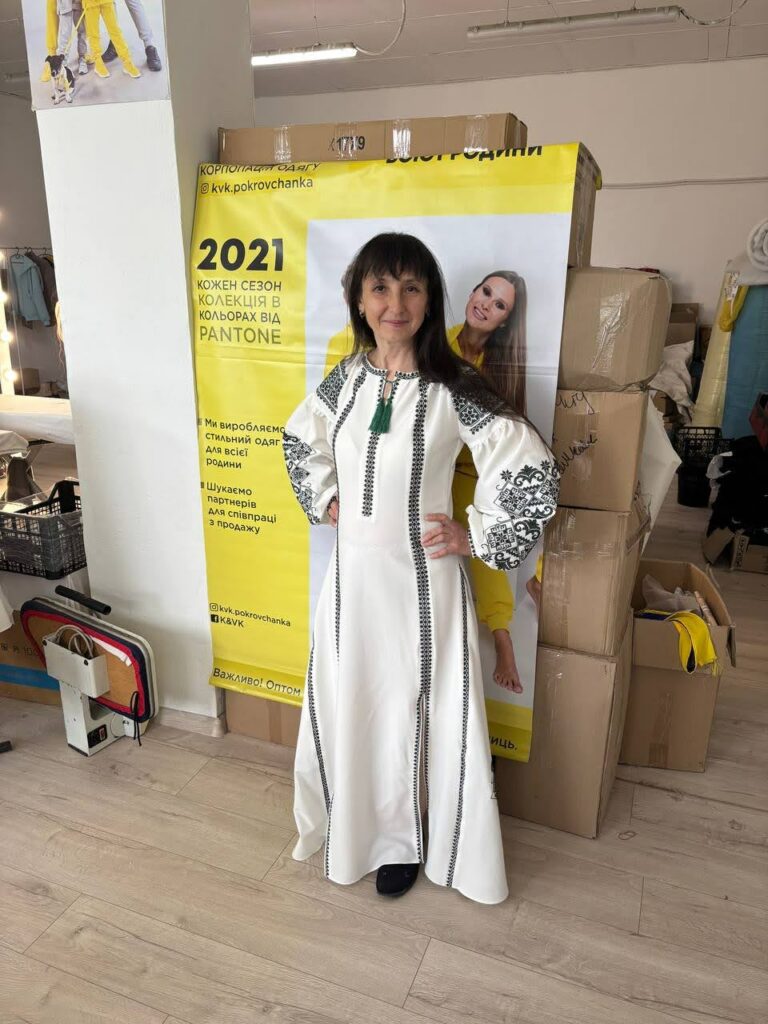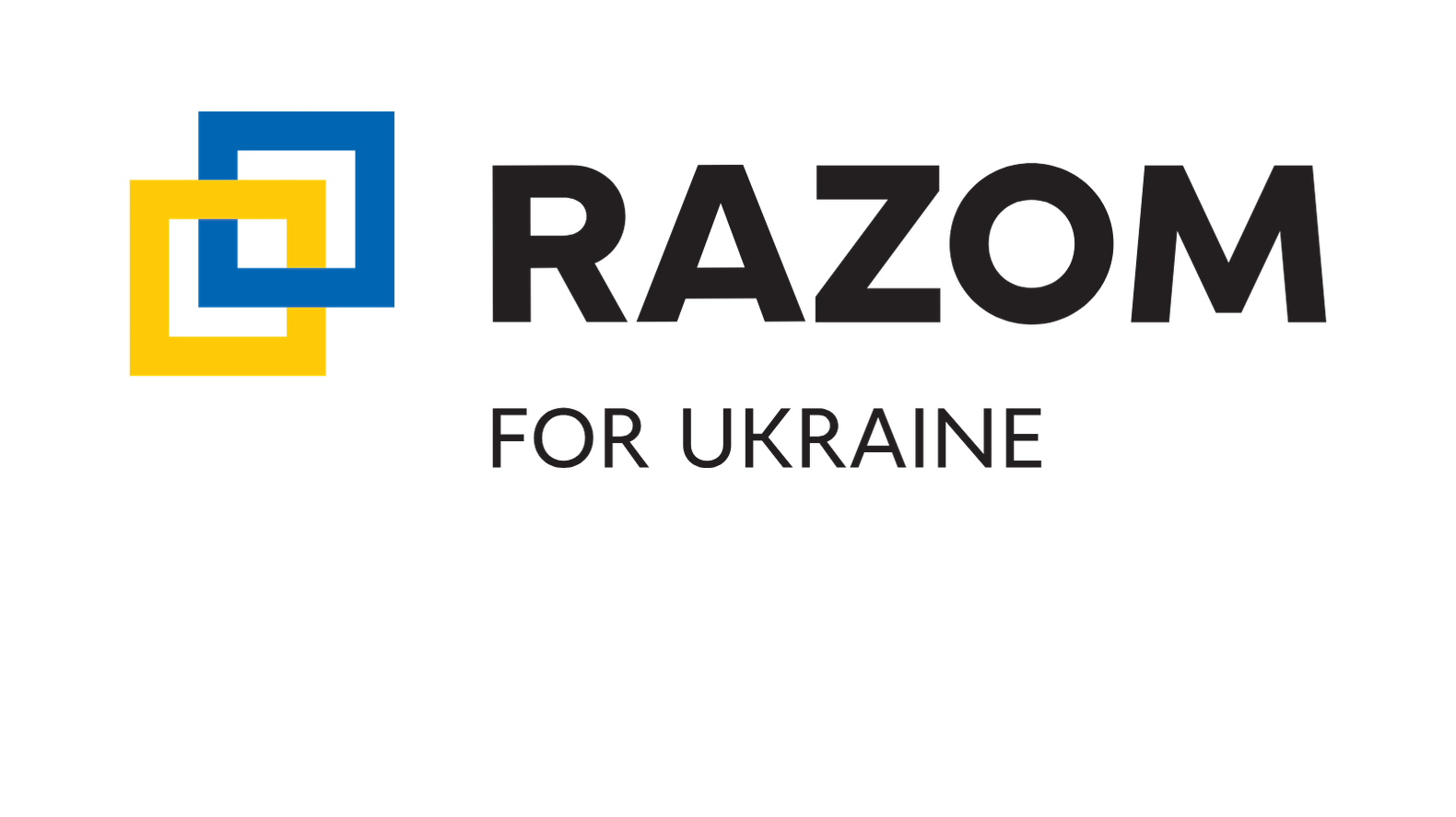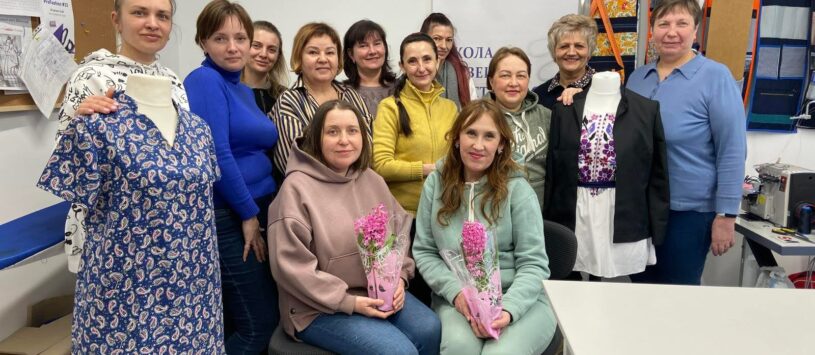“I was about to become an engineer,” says Svitlana Rohozyan, 51, a woman from Lysychansk, Luhansk Oblast. She used to work at the local oil refinery and was getting ready for a promotion. She was raising the child she had long prayed for. “Life began to get back on track,” she said. However, the Russian full-scale invasion of Ukraine changed it all. Part of the Luhansk Oblast was occupied back in 2014, so Rohozyan’s hometown authorities and volunteers immediately began evacuating people, knowing that Russian attacks would escalate.
The Rohozyan family relocated to their farmhouse, not too far from Lysychansk, thinking it would be safer there. “Still holding on to hope that everything will be okay—I planted parsley, carrots, beets, and dill. My child loves those very much,” the woman said. However, severe explosions were getting closer, and she decided to flee.
In mid-April 2022, Rohozyan took her 6-year-old son, Yaroslav, and boarded the cramped evacuation train to Lviv, after getting to the station by bus—all while Russians were shelling the area. The family escaped before the missile damaged their apartment in Lysychansk, and the city was completely occupied in July 2022.
“The only thing I regret is that the icon [holy image] we used for our child’s baptism—I didn’t take it with me. That’s what I regret the most. That little icon stayed behind. You know, I looked at it and left it there, thinking it would protect the house,” Rohozyan said.

Starting from scratch in Lviv was tough. They settled in a dormitory and had to fit in a tiny room with only two beds, together with another family, surviving on internally displaced persons (IDPs) financial aid. Her chemical engineering background became useless, as there were no such businesses nearby. There were some customer service job openings in the area, but Rohozyan could not leave Yaroslav alone.

One day, Rohozyan saw an announcement on Facebook about the School of Sewing Arts, hosted by the West Ukrainian Fashion Industry Cluster (WUFIC) and sponsored by Razom.
“Sewing was my hobby. I used to hem costumes for my son. I also made a lot of clothing for myself. But I understood that I had little knowledge,” she said. She was excited to join the course, but evening sessions didn’t work well with her son’s schedule. Later, she received a call saying a daytime group had been formed and asking if she wanted to join. “I joined with such joy! I was waiting for this,” she recalls.
The School of Sewing Arts’ goal is to teach IDPs tailoring skills, provide graduates with job placement support, and promote growth within the field. It is being implemented in two cities—Lviv and Ivano-Frankivsk. 84 women have already graduated from sewing courses.

Every cohort of future seamstresses is trained for three months. “We sewed skirts, pants, and tops. I sewed myself the skorts I wanted so much,” Rohozyan said. She shared that her favorite part was learning the technology of measuring and cutting out fabric.
“The most interesting is the technique of making those patterns. It’s really fascinating. At first, you don’t understand where the line goes or what it leads to, and then suddenly, you already have a pair of pants,” Rohozyan said.
Rohozyan described her experience during the course as “fun and amazing,” saying she felt like part of a family with the other students and teachers. The group had two instructors—a garment technician and a tailor. “One teaches us how to make patterns, and the other teaches us how to sew on the machine. First, we learn to make the pattern, then we transfer it from paper to fabric [and sew],” Rohozyan explained. “I’m grateful that they [WUFIC, supported by Razom] provided us with fabric, and we didn’t have to run around looking for any.”
The project inspired Rohozyan to seek opportunities to expand her knowledge in the craft. Together with the women she met at the sewing school, she started spending her Saturdays at her former instructor, garment technician Viktoria Karpova’s place, striving to learn more advanced techniques.
After the project, “a job found me on its own,” Rohozyan said. Karpova was looking for women to work at her sewing business, which she relocated from the currently besieged city of Pokrovsk, Donetsk Oblast, to Lviv. Rohozyan accepted the offer and now works part-time for KVK Pokrovchanka.

“I gained knowledge. I now have a job that I enjoy. I like the products we sew, and if you like the products, you like the work that goes into making them. It [apparel] is beautiful, high-quality, and well-made, and you realize that your hands helped create it,” Rohozyan said.
Rohozyan dreams of starting her own business. When she joined the sewing courses, she had a clear goal in mind—to learn the craft and eventually open a clothing repair shop. For now, she hopes to begin with something small. “I want my own home sewing machine—not a professional one, but a modern one,” she said. Rohozyan added that even a basic machine at home would allow her to get started and earn some income. At the moment, she works on an old treadle machine, which can’t compete with electric models, but as she laughed, “it’s great when there’s no electricity.”


“I truly want peace, so that my child is no longer afraid of the sounds of explosions,” Rohozyan said. She recalls her son imitating missile and drone sounds, which he should never have heard. “I don’t want children to know that kind of fear—the fear of losing everything,” she continued. “Yes, you’ve saved your life and your child’s life, but everything you’ve worked for your whole life—it’s all gone.”
8-year-old Yaroslav now studies at a local school, plays fortepiano, and attends drone construction courses. Rohozyan’s husband is fighting for Ukraine.
Rohozyan believes that Ukraine’s prosperity is deeply tied to the well-being of its people. With so many IDPs having lost their jobs, reskilling initiatives like Razom Jobs are key to driving change. “If Ukraine prospers, so will its people. If everyone gets a job, the country will become wealthy. If everyone is willing to work and to earn money, then the country will have money, too,” she said.
Thanks to your support, Razom is able to provide avid learners like Rohozyan with opportunities to gain skills and thrive in a new, exciting field on a professional level.

